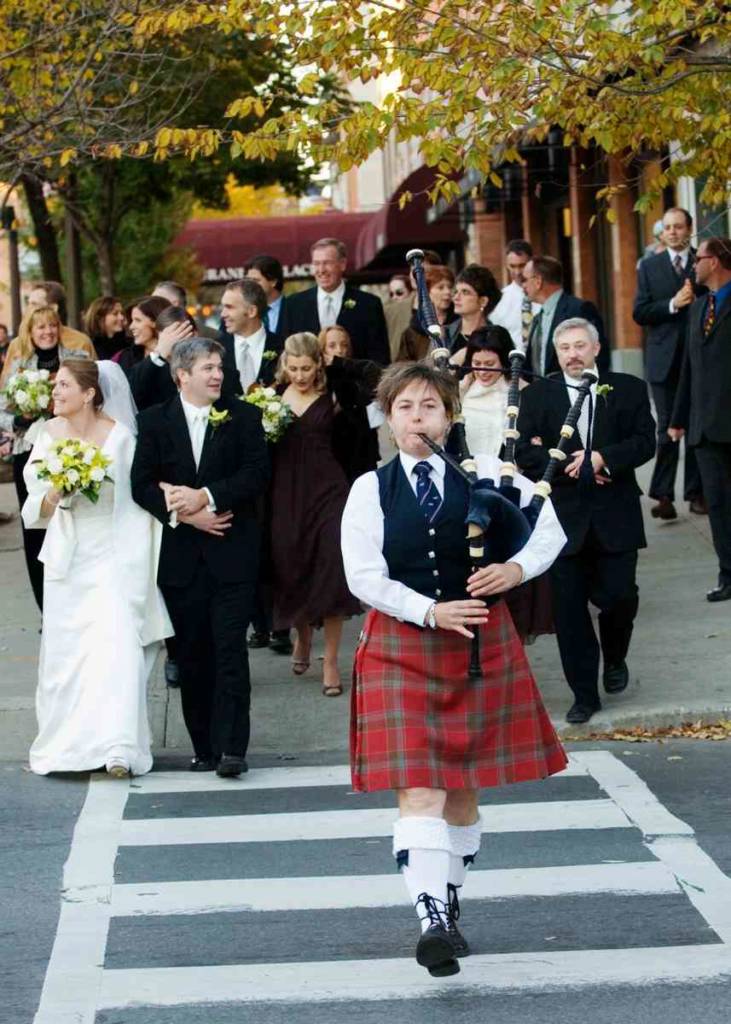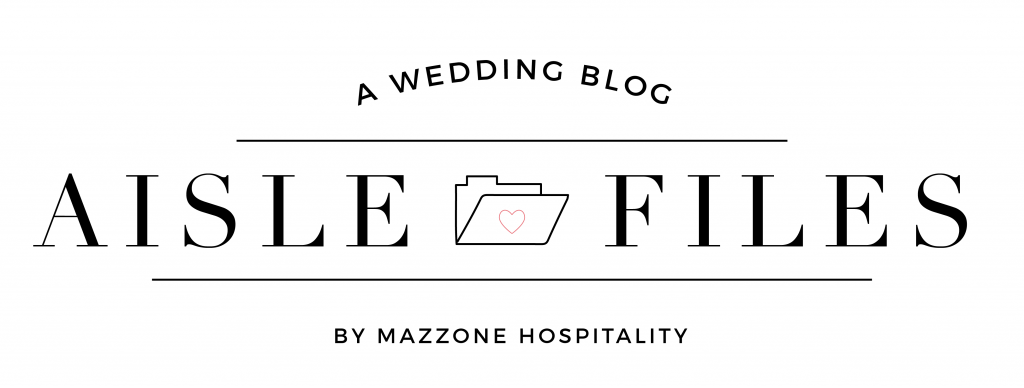Expert Excerpt: Maureen Connor, The Bagpipe Connection
You’ve had this incredible idea to hire a bagpiper to play at your wedding. You know your guests will feel honored and appreciate your consideration as the piper gives them a majestic welcome. The stirring sounds of the pipes played at the recessional will add just the right touch. . . “Oh no, I don’t even know where to start!”
The following article will give you plenty of ideas and suggestions to make the most of your piper and enhance your wedding day.

Photo Credit: Heather Bohm-Tallman
Quality
All pipers are not created equal. As with any other musicians, there is a range of skill and quality. If you are not familiar with pipe music, you may not be aware of the difference. Several key questions can guide you through this part of the process.
1. What are their qualifications?
A good piper has training with a reputable teacher and engages in ongoing development. This is also an indication that their instrument is well maintained and they can prepare it easily. While not a guarantee, it demonstrates their willingness to take their craft seriously.
2. Has the piper performed at weddings? What is their wedding experience?
Those with less experience will be able to play the prelude and postlude quite easily. Those with more experience will be able to play any portion of the wedding on a well-tuned instrument and with an organist if desired.
3. What type of feedback have you received and can you provide the name of a satisfied customer?
As with any service provider, the piper should be able and willing to provide you with contact information of satisfied customers.
4. Can you provide a recording?
A recording is a musician’s sales piece as a photograph is to the photographer. What you can listen to may include: pleasing tone–does it sound good? (The bagpipe shouldn’t sound like screeching cats!) Can you tap along? Is the tempo steady or does it slow down or speed up?
5. Do you compete as a soloist or in a band?
Better pipers compete. It is a way to test themselves and is an indication of ability to perform under pressure. Whether in a band or as a soloist, the lower the grade number, the higher the skill and vice versa. The competing grades range from 5-1 for Bands and from 4-1 and Professional for soloists.
Cost and Contract
A better pipe will command a higher fee. You benefit from their training and expertise and pleasant sounding instrument. Generally, you will pay for the event and not by the hour so use your piper as much or as little as you want. The fee will cover services at the wedding or reception. Often there is an additional fee if the piper is asked to perform at both. An approximate fee is $300. Either the piper or you may ask for a signed contract stating date, time, and place. Details of what is performed may be modified at later date. Expect to book your piper 6-8 months in advance.
Music Selection
Much of the music in the bagpipe idiom is related to dancing or marching in a band. Others are songs adapted to the pipes. A piper playing at the prelude or postlude will play sets of tunes of a particular style (marches, jigs, strathspeys, reels, airs).
There is a vast repertoire of music that is specific to the bagpipe. I strongly discourage playing “traditional” wedding pieces that are usually performed by organ, trumpet, or strings. These pieces do not work well on the pipes and may let you down
For music during the ceremony there are many lovely melodies and what a piper plays will depend upon their repertoire. There are several lovely pieces for pipes and organ, which are quite majestic and suitable for the processional or recessional. The piper and organist will need to rehearse and check their tuning.
Playing Suggestions
Once you decide to incorporate bagpipes into your wedding or reception, the possibilities are limitless. The pipes add a majestic and regal touch and may be used to welcome, honor, and celebrate your marriage as they have for centuries. Some suggestions include:
At the ceremony
–Prelude as guests arrive
–Seating mothers or parents
–Wedding Party procession (Bridesmaids, Bride)
–Meditation, Prayer, Candle Ceremony
–Recessional
–Postlude/Receiving Line
At the reception
–Greeting guests
–Cocktail hour
–Introduction of Wedding Party
–Signal Dinner
–First Dance, if a waltz
An important note on weather: The Great Highland Bagpipe is often played outdoors. Yet, cold weather negatively affects the bagpipe and the instrument will not sound pleasing. For winter weddings it is strongly suggested that the performance take place indoors. Weddings held during November or March may require a back-up plan.
The Bagpipe Connection
518-374-6034
